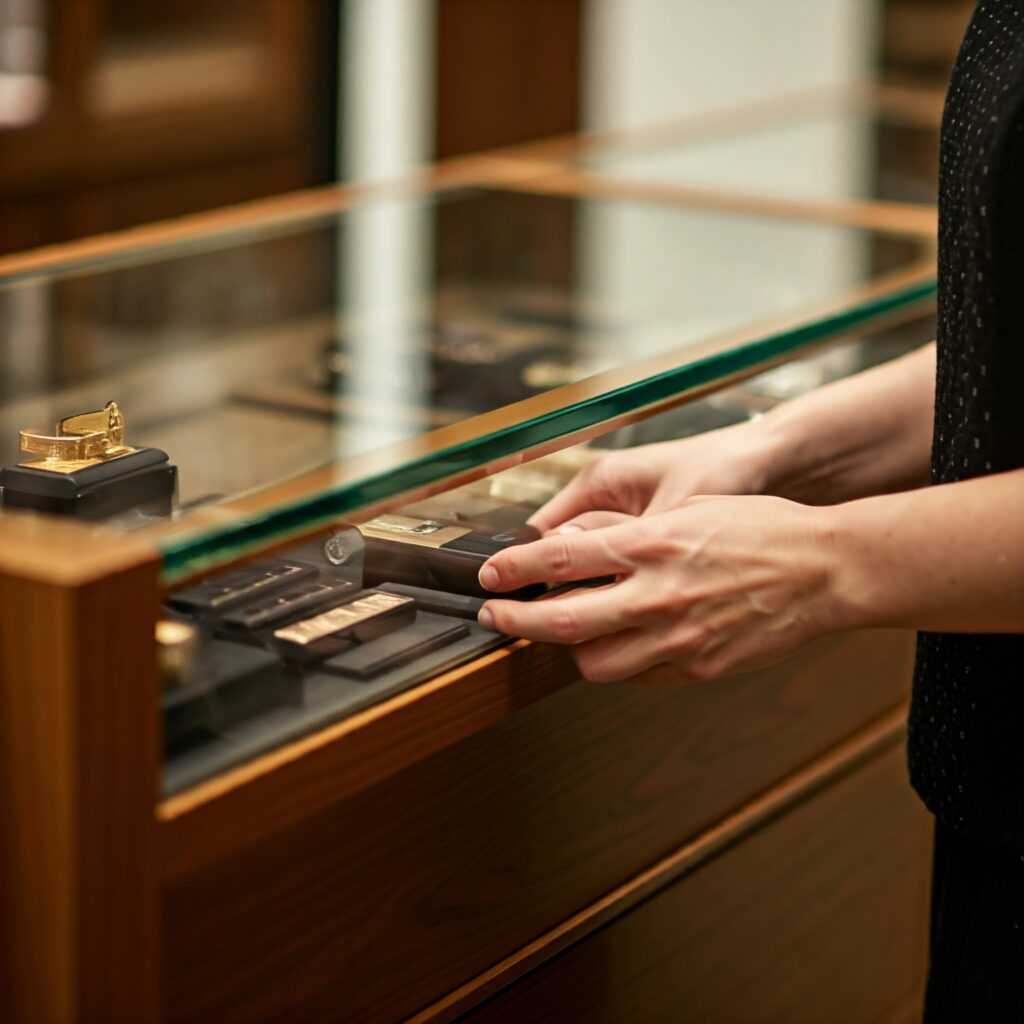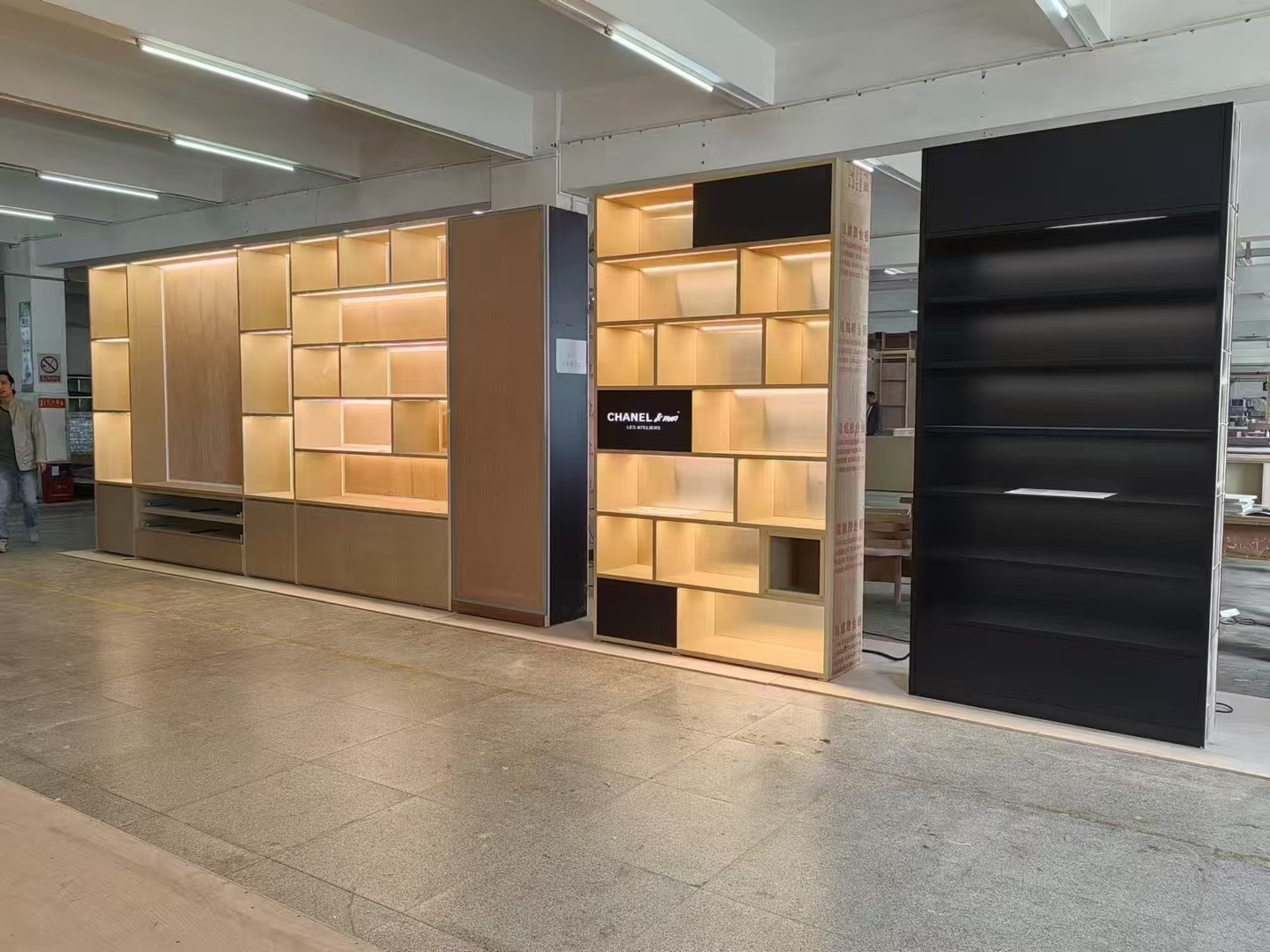When customers walk through a store, they rarely notice the small details that keep the environment safe and organized. One such detail is the locks used on cabinets, drawers, and display cases. While locks may seem like a minor aspect of retail design, they play a vital role in protecting merchandise, maintaining order, and enhancing the overall customer experience. In the shop fitting industry, the right choice of locks can make all the difference.
1. Why Locks Matter in Retail Displays
Retail environments are bustling spaces where security and organization are paramount. Locks are not just about keeping things secure; they also provide control over access, protect valuable merchandise, and ensure that the store layout remains tidy and efficient. In a competitive market, every element of the store must contribute to the brand’s reputation, and locks are no exception.

2. Types of Locks Used in Retail Displays
Locks come in various types, each designed to meet specific needs in retail displays. Here’s a look at some of the most commonly used locks:
Magnetic Locks
Magnetic locks, or mag locks, are a popular choice in retail settings due to their simplicity and effectiveness. These locks use an electromagnetic field to secure doors or cabinets. They are particularly useful for display cases where frequent access is needed, as they can be quickly locked and unlocked with a key card or remote control. Magnetic locks are ideal for high-traffic areas where staff need to access products quickly without compromising security.
Mechanical Locks
Mechanical locks, including cam locks and cylinder locks, are some of the most traditional locking mechanisms found in retail displays. They offer reliable security with simple key operation. Mechanical locks are ideal for drawers, cabinets, and storage areas that require occasional access. They are cost-effective and durable, making them a popular choice for retailers who need a straightforward, no-frills solution.
Combination Locks
Combination locks add an extra layer of security by requiring a code to unlock. These locks are ideal for high-value displays or areas where access needs to be restricted to specific personnel. Combination locks eliminate the need for keys, reducing the risk of lost or duplicated keys. They are commonly used in backrooms, inventory areas, and secure display cases that house expensive or sensitive merchandise.
3. Enhancing Security in Retail Spaces
Preventing Theft
Theft is a significant concern in retail, and locks play a crucial role in minimizing this risk. By securing cabinets, drawers, and display cases with appropriate locks, retailers can protect their valuable merchandise from both internal and external threats. Magnetic and combination locks, in particular, offer enhanced protection by restricting access to authorized personnel only.
Protecting High-Value Items
Certain items in a store, such as jewelry, electronics, or luxury goods, require additional security. Locks are essential for safeguarding these high-value products. Display cases with sturdy magnetic or combination locks can deter theft and give customers peace of mind while browsing. This also allows the retailer to display their premium products openly without fear of loss.

4. Enhancing Customer Experience
Maintaining an Organized Space
Locks help maintain an organized retail environment by ensuring that drawers, cabinets, and display cases remain closed and tidy. This not only prevents items from falling out or getting damaged but also keeps the store looking neat and professional. An orderly store layout enhances the shopping experience, making it easier for customers to navigate and find what they are looking for.
Building Customer Trust
A well-secured retail space sends a message to customers that the store takes security seriously. This builds trust and confidence in the brand, which is especially important when dealing with high-value or sensitive products. Customers are more likely to shop in an environment where they feel safe and know that the products are well-protected.

5. Improving Operational Efficiency
Streamlining Access for Staff
Locks can be designed to provide quick and easy access for store staff while keeping unauthorized individuals out. For instance, magnetic locks controlled by a central system allow employees to access multiple display cases without needing multiple keys. This reduces the time spent searching for keys and increases overall operational efficiency, allowing staff to focus on providing excellent customer service.
Reducing Maintenance Costs
Quality locks can also contribute to lower maintenance costs. Durable, well-made locks reduce the need for frequent repairs or replacements. Magnetic and mechanical locks, in particular, are known for their longevity and reliability. By investing in high-quality locks, retailers can avoid the recurring costs associated with cheaper, less durable options.

6. Leading Brands in Retail Lock Solutions
To achieve the best results, many retailers choose locks from reputable brands known for their quality and reliability. Brands like ASSA ABLOY, Master Lock, and Compx Security are well-regarded in the industry for offering a range of lock solutions, from magnetic to combination locks. Choosing a trusted brand ensures that the locks are robust, easy to use, and fit for purpose, enhancing the overall effectiveness of the retail display.
Conclusion
In the fast-paced world of retail, every element, down to the locks on display cases, plays a role in ensuring a smooth, secure, and enjoyable shopping experience. From magnetic locks that offer quick access to combination locks that provide heightened security, the right choice of locks can protect merchandise, enhance operational efficiency, and build customer trust. As retailers continue to look for ways to stand out, even the smallest details, like locks, can make a significant impact on their success. So, when planning your next shop fitting project, don’t underestimate the power of a well-chosen lock — it could be the key to your store’s security and success.














